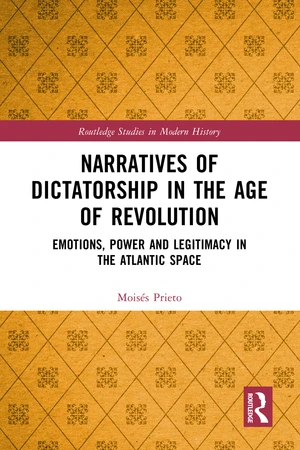Between the mid-eighteenth and the mid-nineteenth century, the idea of dictatorship changed drastically, leaving back the ancient Roman paradigm and opening the way to a rule with extraordinary powers and which was unlimited in time. While the French Revolution produced an acceleration of history and created new narratives of dictatorship, with Napoleon Bonaparte as its most iconic embodiment, the Latin American struggle for independence witnessed an unprecedented concentration of rulers seeking those new nationsâ sovereignty through dictatorial rule. Starting from the assumption that the age of revolution was one of dictators too, this book aims at exploring how this new type of rulers whose authority was no longer based on dynastic succession or religious consecration sought legitimacy. By unveiling the role of emotions â hope, fear and nostalgia â in the making of a new paradigm of rule and focusing on the narratives legitimizing and de-legitimizing dictatorship, this study goes beyond traditional conceptual history. For this purpose, different sources such as libels, history treatises, encyclopedias, plays, poems, librettos, but also visual material will be resorted to. This book is essential reading for scholars and students of modern history, the history of emotions, intellectual history, global history, cultural studies and political science.
Price history
Dec 31, 2022
€44.27

